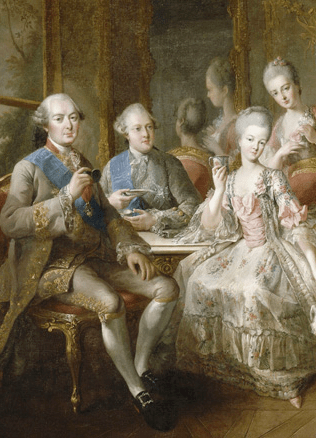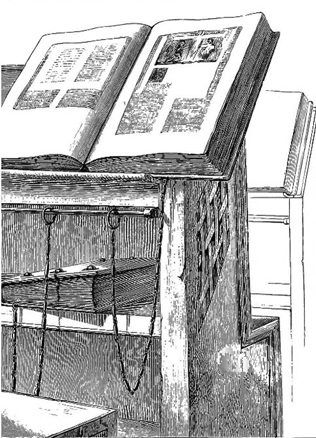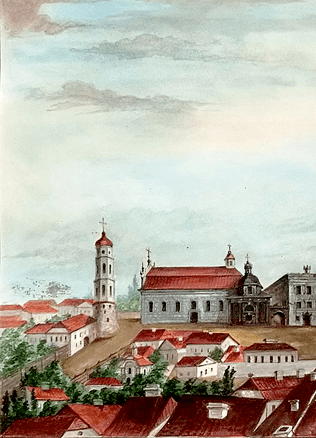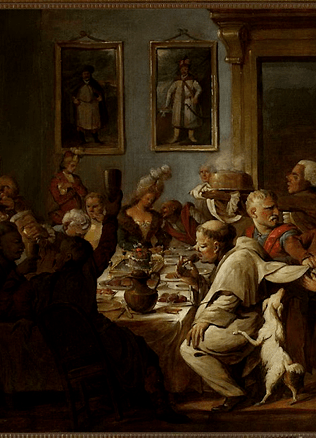Paweł Ksawery Brzostowski and the Republic of Paulava
In the second half of the 18th century, as the ideas of the Enlightenment and Physiocracy were spreading, a number of projects aimed at boosting the efficiency of the agricultural sector and the improvement of conditions for peasants were put forward. (Physiocracy is a doctrine of the political economics that single out land and agriculture as the main source of wealth and regard work in the agriculture as the only productive job.)
While dealing with the reform of estates in Lithuania, two trends evolved. The first one called for the strengthening of demesnes, the introduction of more effective agricultural machinery, gradual abandonment of economically insignificant draft animals and primitive tools, but on the other hand insisted on the use of peasants as a work force. The second one suggested disposing of demesnes and handing out their lands to peasants in return for a land rent. The example of the first concept brought to life was a reform in the economies of Alytus and Šiauliai conducted by Antoni Tyzenhaus, the Court Treasurer of the Grand Duchy of Lithuania. The second model was put into practice by Paweł Ksawery Brzostowski who reformed his private estate in Turgeliai.
In either case, both Tyzenhauz and Brzostowski received a lukewarm assessment in the eyes of the society. The former, who inflamed anger of the opposition, has eventually been removed from his job. The latter, although considered eccentric, would receive numerous representatives of the local nobility as well as foreigners interested in the reform within his dwarf-size Republic of Paulava established in his private land; he, however, had no followers.
A theoretician and practitioner of the enlightened social ideas
Paweł Ksawery Brzostowski (1739–1827) gained his basic education at the Vilnius Piarist Collegium before choosing the career of a cleric at the age of 13 and continuing his studies at Vilnius University, Warsaw Collegium for Missionary Priests and Collegium Clementinum in Rome. He studied theology, logic, psychology, the history of the Church, political history, canon and civil law, as well as languages. He received his doctor’s degree in 1773 in Vilnius. During his stay abroad he familiarized himself with the new ideas in economy and social reforms. Upon his return in Lithuania, he worked a lot for the education of the society, translated and published in Vilnius various books popular in the Western Europe.
The publication of Logic, or The Science of Thinking and Contemplation of Things by Kazimierz Narbutt (1738–1807), a piarist professor under the patronage of Brzostowski, served as a significant breakthrough in the philosophical thought in Lithuania.
The book dedicated to “His majesty priest Brzostowski, the scribe of the Grand Duchy of Lithuania, the canon of the Vilnius Cathedral, the chevalier of the Order of Saint Stanislaus, […] who renders his sagacious mind, his capabilities and his efforts of the good citizen as well as the profits of his estate to serve his country, to become an example for his countrymen to follow and to bring benefits” was released in 1769, i. e. the same year that Brzostowski established his Republic of Paulava.
It seems likely that the idea of practical realisation of the economic and social reforms in order to create an ideal society and state, the Republic of Paulava, were born when Brzostowski studied in Rome. He waived off his part of inheritance after the death of his father on behalf of his brothers and purchased the estate of Merkinė in the vicinity of Vilnius in 1767 after receiving compensation in cash. He named the estate after himself, Paulava (otherwise Pawłowska).
Utopia materialised: a state within a state
In 1769, Brzostowski made public the regulations of the Republic of Paulava in which he described in detail the order of rule, the official posts, the limits of responsibility of the officials, the principles of order within the state, the implementation of justice, the principles of economic activity, the compulsory education of peasants’ children.
“In order to counter deprivation and indebtedness”, the regulations banned “all farmers from overspending so that they dare not waste their money when they marry off their sons and daughters or arrange Christening parties or funerals.” On the other hand, the document provided for the development of olericulture and the introduction of new plants: “Every farmer must have his own garden of vegetables; thus after arranging beds there he must report to the estate and the estate will send a gardener to plant.” Moreover, Brzostowski wanted his people to have better living conditions: “If anyone decides to build a new house, [he or she] will have to erect chimneys and mount square fathom-wide windows with glass panes.”
The regulations of the Town of Paulava established that “a burgomaster elected by the city residents will have his court that will judge only those who will cause rows in the town.” The burgomaster’s decision could be appealed against: “To the marshal in the presence of the master or to the estate in his absence.” The regulations banned unsanctioned construction and took care of fire protection as every house was obliged to possess “a metal hook fixed on a long stem to be used to destroy the house in the event of a spreading fire.” Security in Paulava was to be ensured by the watch on a rota basis “with a loaded weapon and the gate closed from sunset to dawn.” “Out in the street, just like at home”, everybody had to “keep general cleanness and every house owner had to collect thrash and broom it into heaps […], to take care of the trees planted in the street.” The city dwellers had their uniforms introduced: “A blue-fabric coat without a kontusz, a red sash and a green cap with sheep wool. No weapon can be attached to the sash except a reed and a walking-stick; everyone must have a weapon at home. Wives and daughters must wear light blue shifts, waistcoats of the same colour, white linen aprons and a head cover at their own discretion.”
A social experiment and a profitable business
The Republic of Paulava, run by its president who himself was the owner of the estate, existed from 1769 to 1795.
It comprised the estate of Merkinė with 34 peasant households and the demesne of Turgeliai occupying the total area of 78 volok (ca. 1,640 hectares or 4,046 acres). Drudgery was abolished and peasants were granted personal freedom. They were allowed to manage their property and, in part, their land without restraint, they could trade or undertake crafts. Brzostowski’s aim was the maximum intensiveness of the economic activity. And he was successful in doing that: his pre-reform estates of Merkinė and Turgeliai earned him 6,097 golden zlotys in 1767 of which just 791 zlotys came for land rent. In 1784, his revenue already went up to 15,213 zlotys. He was convinced that land rent should only be collected from wealthy peasants. In the beginning he used wage labour paying one zloty for every workday; he did not scrap the compulsory work burden, however. In 1786, the pay-for-work system was finally introduced. By doing this, he paved the way for the capitalist-style relations within his estate.
He paid considerable attention to education: he established a school and offered people learning crafts.
In 1770, he worked out and published a textbook on agricultural activity On Agriculture for the Convenience of the Farmers Living in Paulava (Pol. O rolnictwie dla wygody gospodarzy w pawłowie mieszkających) and a popular textbook on medicine Remedies for the Convenience of the Farmers Living in Paulava (Pol. Lekarstwa dla wygody gospodarzy w Pawłowie mieszkających). It was his initiative to publish a book by the Swiss physician Hans Caspar Hirzel (1725–1803) The Rural Socrates, or An Account of a Celebrated Philosophical Farmer (Pol. Sokrates wieśniak, albo Opisanie życia gospodarskiego i cnotliwiego filozofa rolą bawiącego się) and a book by the French agronomer Duhamel du Monceau (1700–1782) The Elements of Agriculture (Pol. Dzieło o rolnictwie).
Every four years Brzostowski would summon the general assembly of his estates in order to approve officials “for the next term” or dismiss them, to check the data of births and deaths, and to talk with his peasants during the specially arranged parties.
In the face of the third partition of the Polish and Lithuanian state, Brzostowski exchanged his possessions in Lithuania for a palace in Dresden with the Great Marshal of the Crown Fryderyk Moszinski and emigrated. He spent several years in Dresden and in Rome before returning in Lithuania in 1801. He served as a parson in Turgeliai and later in Rukainiai where he died in 1827. He was buried in the church of Rukainiai which had been rebuilt with his money. The Republic of Paulava he created has not earned any profit to its new owner who eventually sold the estates to the Joanites who tried to put a lid on the peasants’ freedoms to ultimately bring them back to the corvee.
Literature: Rakutis, Valdas. 1769 m. kovo 10 d. Pavlovo respublikos nuostatai, Praeities pėdsakais. Skiriama Profesoriaus daktaro Zigmanto Kiaupos 65-mečiui, Vilnius, 2007, p. 389–416.
Ramunė Šmigelskytė-Stukienė



